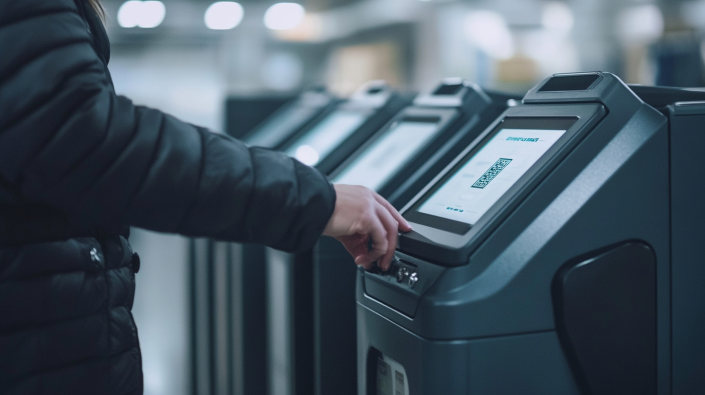Traveling can be exciting, but one of the biggest concerns for many tourists is how to keep their luggage safe while exploring a new city. This is especially true in busy destinations like Porto, where visitors often arrive early or leave late, juggling bags between accommodations. In this guide, we’ll delve into everything you need to know about luggage storage security, from what features to look for in a reputable service to practical tips for safeguarding your belongings.
1. Types of Luggage Storage Services
Hotel Storage
- Pros: Often complimentary for guests, easy to access if you’re staying there.
- Cons: Limited to reception hours, sometimes not available for non-guests.
Train and Bus Stations
- Pros: Convenient if you’re in transit, usually near public transportation hubs.
- Cons: Lockers can fill up quickly, and some stations don’t offer insurance or advanced security features.
Local Shops and Cafés
- Pros: Informal options near tourist spots, can be budget-friendly.
- Cons: Security standards vary widely, and items may simply be left in a backroom.
Automated Luggage Lockers (e.g., Bagage Locker)
- Pros: High-tech security systems (electronic locks, CCTV), flexible access hours, online booking, insurance coverage.
- Cons: Daily rate might feel high if you only need a few hours (though often more cost-effective if shared among multiple travelers).
2. Key Security Features to Look For
2.1 Surveillance Cameras
- Why It Matters: Continuous monitoring deters theft and helps identify suspicious activity.
- What to Check: Ensure the facility has CCTV cameras covering both the entrance and the lockers themselves.
2.2 Electronic or Digital Locks
- Why It Matters: Traditional key-based systems can be more vulnerable to theft or lock-picking.
- What to Check: Look for lockers with unique access codes or RFID cards. Many modern services send you a personal code via email or SMS after booking online.
2.3 Secure Access Controls
- Why It Matters: Limits who can enter the facility, reducing potential threats.
- What to Check: Some automated luggage storage centers require a code or card just to enter the premises, in addition to a separate locker code.
2.4 Insurance Coverage
- Why It Matters: Even with robust security, accidents can happen. Insurance provides peace of mind.
- What to Check: Confirm how much coverage is provided—some go up to €300 or more, depending on the service.
3. Best Practices for Safeguarding Your Belongings
- Use TSA-Approved Locks
- Even if the facility itself is secure, consider using a small lock on your suitcase. This adds an extra layer of protection.
- Label Your Luggage
- Attach a discreet luggage tag with your contact information (email or phone number). Avoid putting a full home address for privacy reasons.
- Avoid Storing Valuables
- Whenever possible, keep essential items like passports, wallets, and electronics with you. If you must store them, ensure you have a record of serial numbers or images.
- Document Your Items
- Take photos of the contents of your suitcase, especially if you have high-value items or electronics. This can be helpful if you need to file an insurance claim.
- Check Access Hours
- Make sure the luggage storage facility’s opening and closing times align with your schedule. Retrieving your bags outside of operating hours could be a security risk or simply impossible.
4. How Automated Lockers Enhance Security
Automated luggage lockers are gaining popularity for good reason: they’re often more secure than traditional alternatives.
- Individual Codes
- You receive a one-time code for both the building entrance (if applicable) and your specific locker, reducing the likelihood of unauthorized access.
- Remote Monitoring
- Many automated services track locker usage in real time, ensuring prompt responses to any irregularities.
- Zero Human Error
- No risk of an attendant misplacing keys or giving a locker key to the wrong person. The entire process is digital and traceable.
- Instant Insurance
- Reputable automated locker services often include insurance coverage as part of the daily rate. Check the terms for coverage limits.
5. Handling Potential Issues
- Lost or Forgotten Codes
- Most modern services have 24/7 support or an online portal to recover your booking details.
- Damaged or Stolen Items
- Report the issue immediately to the storage provider. File a police report if theft is suspected, and follow the insurance claim procedure.
- Missed Closing Times
- If you’re delayed or can’t retrieve your luggage before the facility closes, contact support as soon as possible to avoid additional charges or complications.
6. Why Secure Luggage Storage Matters in Porto
Porto is a bustling tourist destination with a high volume of daily visitors exploring Ribeira, Vila Nova de Gaia, and the historic city center. Navigating cobblestone streets and crowded areas with heavy suitcases can be both inconvenient and risky. By choosing a secure luggage storage service, you:
- Protect Your Belongings: Minimize the chance of theft or damage.
- Explore Comfortably: Roam freely without dragging suitcases or backpacks.
- Optimize Your Time: Store your luggage before hotel check-in or after check-out, allowing for extra sightseeing.
- Gain Peace of Mind: Know that your bags are under surveillance and potentially insured.
Conclusion
When it comes to luggage storage security, knowledge is power. Understanding the various options—hotel storage, station lockers, local shops, or automated lockers—helps you select the solution that aligns with your safety, convenience, and budget requirements. By prioritizing facilities with robust security features like surveillance, electronic locks, and insurance, you’ll enjoy a worry-free travel experience. Whether you’re visiting Porto or venturing elsewhere, these best practices ensure your belongings remain in good hands, allowing you to focus on what truly matters: exploring and making memories.




